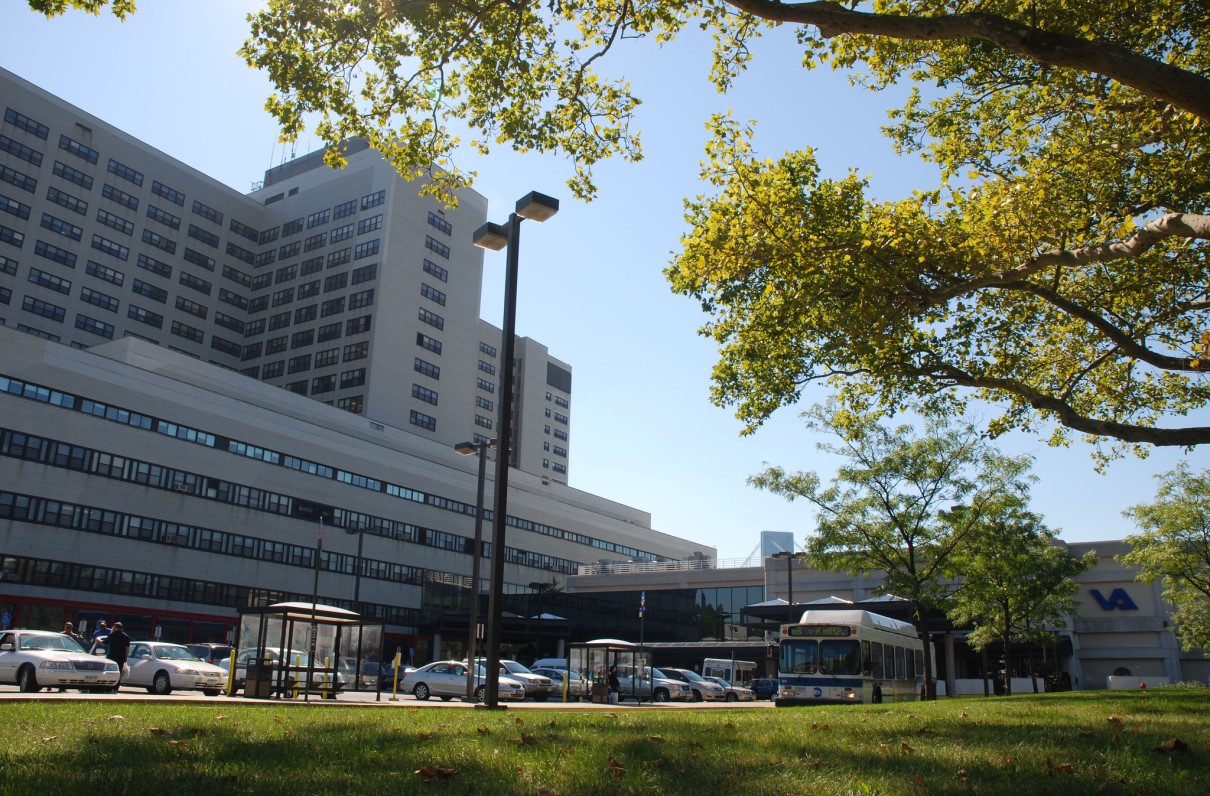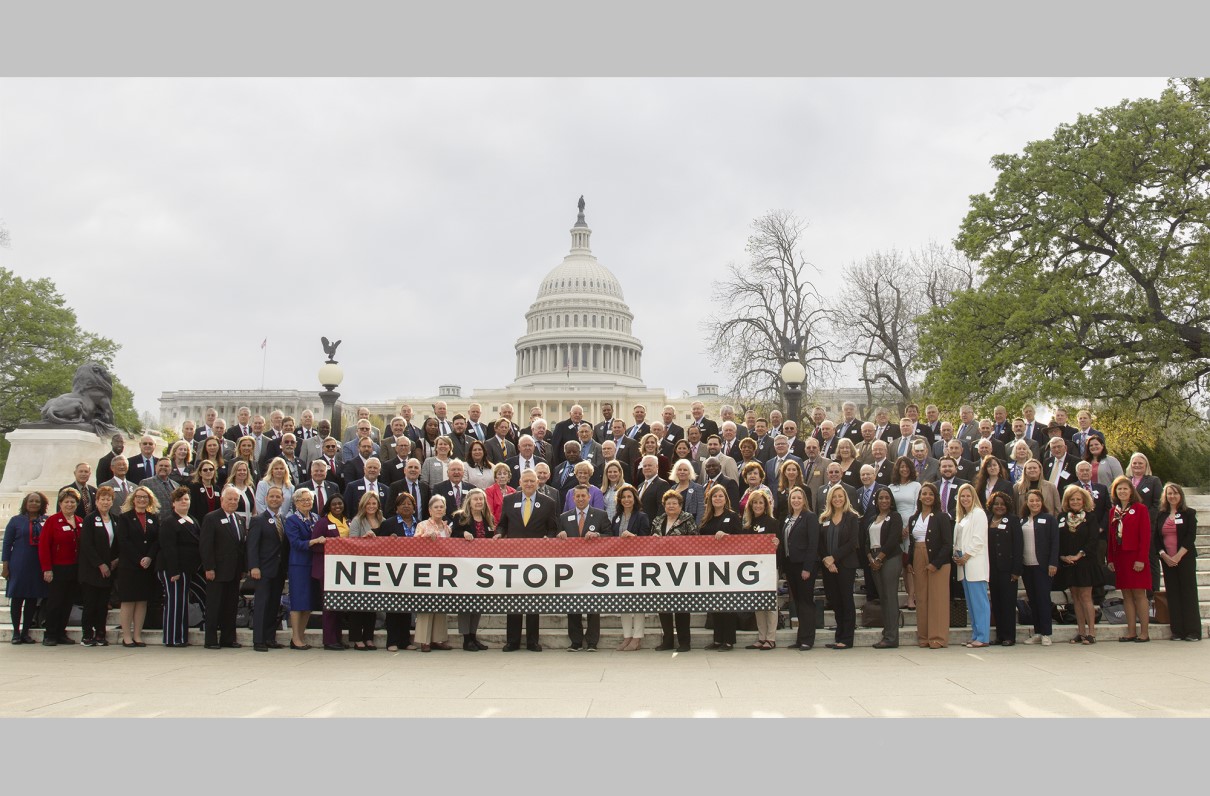Most veterans and their families – and, I venture to say, most Americans – are unaware of the “Fourth Mission” associated with the VA health care system.
In light of this global pandemic, it may well be the most important and critical mission VA is asked to perform this century.
In recent years, the Veterans Health Administration (VHA) has frequently been tapped to provide emergency management response and disaster relief in times of crisis, such as hurricanes, floods, and fires. That authority stems from the 1982 VA/DoD Health Resources Sharing and Emergency Operation Act (P.L. 97-174) and was expanded by the Federal Response Plan in 1992.
The 1982 law created what would become the VA’s “Fourth Mission,” in addition to providing health care and benefits to veterans, and maintaining national cemeteries. Per the VA’s mission statement, that mission “is to improve the Nation’s preparedness for response to war, terrorism, national emergencies, and natural disasters by developing plans and taking actions to ensure continued service to veterans, as well as to support national, state, and local emergency management, public health, safety and homeland security efforts.”
[RELATED: Affected by COVID-19? Take MOAA’s Survey]
While the VA has some authority to share health care resources based on local community agreements, the president must declare a disaster or national emergency to implement the National Response Plan so the Federal Emergency Management Agency (FEMA) or other lead agency can direct the release of needed resources to affected communities.
A White House proclamation issued March 13 declared the COVID-19 outbreak a national emergency beginning March 1. The proclamation set forth the authority and series of actions for a federal response. While the VA has not been directed to fully execute its Fourth Mission emergency management response provided in law, it has been working closely with its federal partners to combat the pandemic as it gears up for a larger response effort.
In a March 27 press release, VHA shared its public health response plan to serve as a best practice guide and tool for medical communities nationwide.
According to VHA executive in charge, Dr. Richard Stone, “Within days of the first confirmed COVID-19 case, VHA began a comprehensive response and operations plan to protect our veterans, their families and the workforce.”
[RELATED: Caregiver Survey Aims to Identify Unique Needs During COVID-19 Pandemic]
Taking Action
Up to this point the department had been monitoring and assessing internal supply and personnel capacity to respond to whatever mission is required. VHA had been realigning personnel and facilities in hots spots around the country like New York state and Louisiana, while monitoring other areas where spikes in the virus are occurring.
However, on March 29, VA announced plans to open 50 beds for non-COVID-19 patients at its New York Harbor Manhattan and Brooklyn VA medical centers.
“VA is proud to assist the City of New York while continuing it primary mission of caring for our Nation’s Veterans,” VA Secretary Robert Wilkie said.
The decision came at the request of the New York State through FEMA, a move which may well signal the start of a mission change for VHA.
Like many medical systems around the country, the VA has canceled some elective and non-emergent care, moving much of its care online. The department’s expansion of its already robust telehealth capabilities limits exposure to staff and patients, saves personal protective gear for the most important cases, and allows veterans to avoid overcrowded facilities.
Those who must go to a VA facility will be greeted by several changes, including the separation of COVID-19 and other patients to limit risk. Veterans exhibiting symptoms consistent with COVID-19 (fever, cough, shortness of breath) should immediately contact their closest VA facility.
[RELATED: Links to VA and Other COVID-19 Resources at MOAA.org/Coronavirus]
What’s Next
The $2 trillion coronavirus-response package known as the CARES Act became last week and includes nearly $20 billion in VA funds.
At the time the House voted on the package, House Veterans’ Affairs Committee Chairman Mark Takano (D-Calif.) spoke on behalf of those the money would benefit.
“This funding will save veterans’ lives, protect VA’s health care providers and first responders, and give VA the resources it needs to serve as the nation’s backup health care system in communities where local hospitals are overwhelmed with coronavirus patients,” he said, while citing the hundreds of VA patients and employees who had tested positive for the virus – figures that have risen in the days since his speech.
VA funds will provide:
- Supplies and equipment to protect health care providers and medical staff
- Resources to help the department address the public health emergency
- Aid for homeless veterans as well as elderly veterans living in community centers and assisted living facilities
- Enhancements to VA’s technical systems, and expansions to telework and telehealth capabilities.
- Resources to restructure facilities to increase beds and medical treatment space, including the use of mobile units
- Options of urgent or emergency care in the community
The bill provides funding for employee overtime and comes at a time when the department sent out an alert through social media for retired health care and federal health providers to come back to work and help VA battle the COVID-19 pandemic. Interested retired physicians, nurses, pharmacists, laboratory technicians, respiratory therapists, and other medical professionals can register online.
Finally, there is relief funding to protect veteran-owned small business owners from going under and homeowners from losing their homes. The bill also would provide stimulus checks for eligible veterans with pensions and means-based VA benefits.
For the most current information on COVID-19 resources and updates visit MOAA’s COVID-19 webpage and read upcoming weekly newsletters.
Coronavirus Resources
- Coronavirus.gov
- Centers for Disease Control and Prevention Coronavirus Website
- CDC Advice for Higher-Risk Individuals
- VA Coronavirus Website
- TRICARE Coronavirus Information
- DoD Coronavirus Response Website
- Health.mil Coronavirus Information
- Military OneSource Coronavirus Resources
- National Institutes of Health Coronavirus Information
- From MOAA: What You Need to Know About the CARES Act
- Latest Coronavirus News from Military.com
- Latest Coronavirus News from Military Times



